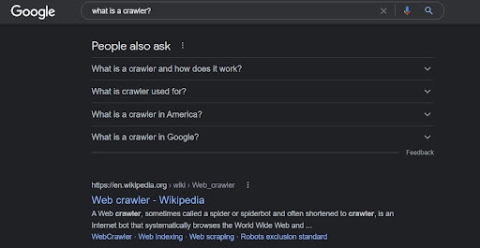How to Avoid Keyword Research Mistakes on Google

How to Avoid Keyword Research Mistakes on Google
Do you feel like your SEO efforts don’t affect your ranking on Google in a positive manner? If yes, there might likely be an issue with your keyword research. But why is it essential to fix it?
Having handled nearly 93% of all search queries globally, Google continues to be an immense force that can skyrocket any business to success. The competition is fierce, so ranking a site high on Google happens to be a formidable challenge for business websites around the world.
Being aware of the best SEO practices is crucial if one wants to appear on the first page of the search engine with the highest market share. But where do you start?
Bringing organic traffic to a website comprises different components, keyword research being the most prominent. Just like everything SEO-related, keyword research won't deliver overnight success but will help your business in the long run.
Considering how crucial keyword research is, it’s no surprise that our attention shifts to how to improve this as a process to find the right words for your website.
How Does Google Ranking Work?
Before we go further with our tips, let us first describe how Google ranking works. Even if you’re a beginner, you’re probably aware that people use the search engine to look up information they require at a specific moment.
With that in mind, because of the endless opportunities and access to information Google provides, it is now more important than ever to rank at the top to reach your target audience.
Simply put, Google's purpose is to answer people's questions and queries. However, Google needs to show the most relevant answer to a particular question, or the engine will otherwise lose its credibility and reliability.
Here comes the tricky part. How does Google decide which website holds the most valuable information that the user will find helpful?

Source: Google SERP
We have to thank the web crawlers for that. Often referred to as spiders, the Internet bots spend their "time" scanning and indexing hundreds of thousands, if not millions, of pages and websites. Thanks to the many years of experience, today’s algorithms are almost unmistakable.
Once the crawlers inspect all of the pages on a website, it is finally time to rank the website. That’s where the infamous ranking algorithm with over 200 factors influencing your position on the search pages comes in place. But are we aware of all 200 factors? Unfortunately, no. We understand some of them and how they work, but others remain a mystery to this day.
Google regularly changes its algorithms, so something that performs well today may not be working so immaculately tomorrow. As to how often Google changes its algorithms - it depends. There are daily minor updates and other major ones occurring every three to four months.
Why is Keyword Research Important?
We have already mentioned that keywords are crucial for Google ranking, but we never explained why. Considering it is Google's job to answer people's queries, it is safe to say that the combination of words the latter use for their questions helps the former analyze and provide relevant answers.
Those groups of words are what we call keywords. Having the means and knowledge to execute good keyword research will help you meet the searchers' needs which will elevate your business' performance.
7 Common SEO Pitfalls to Avoid
Luckily more and more people grasp the importance of keyword research. However, some of them still experience difficulties with their websites' ranking. Here are the top 7 SEO pitfalls to avoid when executing your strategy:
- Not addressing search intent
- Ignoring location when targeting an audience
- Overlooking follow-up research
- Not conducting a competitive analysis
- Exclusively targeting popular (competitive) key terms
- Avoiding longtail keywords
- Allowing content cannibalization
If you feel like, despite your best efforts, your website's pages are still far from ranking on the first pages of Google, you may be guilty of the following keyword research mistakes.
1. Turning a Blind Eye to the Search Intent
First things first - search intent. A common mistake some marketers make is ignoring the purpose of the keyword. Are the searchers looking for valuable information? Or are they in need of the location of a service, for instance?
To avoid this pitfall, you need to get familiarized with the different types of intent. Let’s look at them:
Informational intent: Helpful for providing relevant information on a particular topic, therefore more commonly used for blog articles. "What is a keyword?" is an example of an informational search query.
Transactional intent: People using such keywords are searching for a product/service/etc. with the intent of making a purchase. "SEMRush subscription" is an example of a transactional search query.
Navigational intent:
The names of brands/businesses/companies are prominent examples of navigational search queries.
Commercial intent: Those are queries that show the searcher's intent to buy a product. The nuance that differentiates commercial from transactional keywords is that here we know that the searcher is not entirely convinced about the specific brand and is looking for more information. "The best SEO plugins for WordPress for 2022" is an example of commercial investigative intent.
2. Ignoring the Location of Your Target Audience
Are your efforts pointed in a direction to rank your website higher for a particular location? Or do you want your website to be in top positions globally? It is common practice for beginners to confuse those two things, so let's clear them out.
If you want to rank higher for a specific area, you must be searching for relevant local keywords. Local SEO is usually the go-to option for businesses with physical placements, be it a store, an office, etc.

Image Source: Google SERP
Here is an example - if you have an office in New Jersey, you wouldn't want to rank high in the search results for Boston unless you are planning to relocate.
On the other hand, global SEO is all about getting out there on top for the whole world to see. When location is not an issue, you may look for keywords that help you rank higher on a national or even international level.
Essentially, the keywords will vary for those different types of SEO. Don't ignore your audience's location. Be considerate of your goals and execute your keyword research with them in mind.
3. Not Doing Follow-Up Research
For better or worse, your job is not over once you finish your keyword research. In the fast-pacing world we live in, things can change in an instant, and so do search queries.
Those changes will not rapidly affect the search engine results, but eventually, they will. And the worst thing is that unless you do follow-up research every few months, you might be missing some trendy yet relevant keywords.
4. Overlooking Your Competitors
Ignorance may be bliss, but not in the marketing world. The less you know about your competitors, the more difficult it will be for your website to rank to a higher position in the engine.
Overlooking your competitors and their SEO efforts may hinder your ranking. Look at the SERP, check your competitors, and thoroughly analyze their content.
5. Only Targeting Popular Key Phrases
Picking the most popular words with the highest search volume is a trap all rookies fall into. The stats for a specific keyword may look great, but that does not mean they will convert successfully and actually help you gain a new audience.
There are several problems with those keywords, with the most relevant being that they are too broad. For instance, "SEO" is a keyword with an enormously big volume but probably won't help you rank higher on Google.
People could be searching the term for various reasons. Some may look for a detailed explanation of SEO, while others may be on the quest to find tools that can elevate their ranking efforts.
Don't make a keyword mapping with words that are not relevant or specific enough for your business.
6. Avoiding Long-Tail Keywords

Source: Google SERP
Despite looking scary or unappealing, long-tail keywords are a gold mine. Yes, they are notorious for having less search volume, but that is entirely due to their specific nature.
However, they are not to be avoided, despite the lowered volume. When conducting your keyword research and prepping your content marketing strategies, include relevant yet not-too-niche long-tail words.
7. Allowing Content Cannibalization
Google doesn't tolerate cannibalism. But what is that? Cannibalism is when you use one keyword or the same set of words for content on more than one page.
Using the same keyword on multiple pieces of content for different pages will hinder your ranking because Google can't differentiate which page contains the most relevant answer to show to the searchers.
It is all part of the bigger picture. Think of your websites and the pages you would need, and do your keyword research with those in mind.
3 Good Practices to Help Rankings
Most of those keyword research traps you can fall into are now popular outdated SEO practices. Adapting to today's ranking standards is crucial, so here are some tips on how you can do that.
1. Differentiate Singular From Plural Keywords
Did you know that a word may have a different search volume for its singular and plural forms? Many of the tools marketing experts use for their keyword research illustrate dissimilar stats for the two variations of the words.
Instead of ignoring those metrics, use them to your advantage. For example, use the plural keyword "stylish blouses" for category pages and the singular "long-sleeve stylish blouse" for product descriptions and pages.
2. Optimize Content Regularly
It, indeed, takes time to reap the fruits of what you sow, especially when it comes to ranking a website. And even when you finally see your website up on the top, your job will not be over.
To maintain your positions on Google, you must make sure your content will stay relevant regardless of the time passed since you published it. Every so often, you have to go back to your old content and optimize it to meet the current needs of the searchers by removing keywords or adding newer, trendier ones.
3. Create a good linking strategy
A general component of any good keyword research is picking out the most appropriate anchor text for your link-building strategy. It helps businesses skyrocket to the top of the SERP and maintain their high positions there.
Furthermore, once on top, you will have to act quickly. Continue adding links to your content. Don't stop doing anything that has proven effective because it won't be long until your competitors try to steal your tactics and overtake your position.
Remove Keyword Research Mistakes From Your Content Strategy
The gist of any keyword research is knowing and understanding your audience and their needs. Start from there, scrutinize your audience and its search queries. Then think of ways to offer valuable yet SEO-driven content that can help you rank your website on the search engine.
Don't give up if you don't see results within the first week or two. It takes time for the crawlers to find your pages and index them so that they can show on the SERP.
Hopefully, now that you've reached the end of this article, you will be doing all the right things and avoiding the pitfalls that can hamper your SEO ranking efforts.
Looking for a team to help you with keyword research? Contact an SEO agency on The Manifeset.
